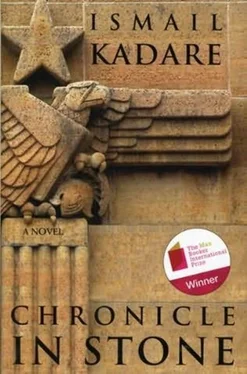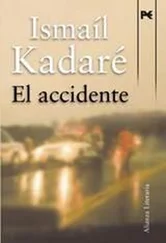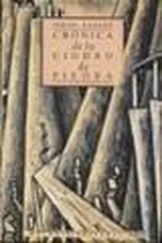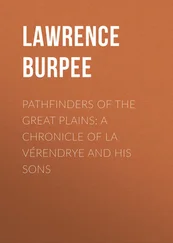Ismaíl Kadaré - Chronicle in Stone
Здесь есть возможность читать онлайн «Ismaíl Kadaré - Chronicle in Stone» весь текст электронной книги совершенно бесплатно (целиком полную версию без сокращений). В некоторых случаях можно слушать аудио, скачать через торрент в формате fb2 и присутствует краткое содержание. Жанр: Современная проза, на английском языке. Описание произведения, (предисловие) а так же отзывы посетителей доступны на портале библиотеки ЛибКат.
- Название:Chronicle in Stone
- Автор:
- Жанр:
- Год:неизвестен
- ISBN:нет данных
- Рейтинг книги:4 / 5. Голосов: 1
-
Избранное:Добавить в избранное
- Отзывы:
-
Ваша оценка:
- 80
- 1
- 2
- 3
- 4
- 5
Chronicle in Stone: краткое содержание, описание и аннотация
Предлагаем к чтению аннотацию, описание, краткое содержание или предисловие (зависит от того, что написал сам автор книги «Chronicle in Stone»). Если вы не нашли необходимую информацию о книге — напишите в комментариях, мы постараемся отыскать её.
Chronicle in Stone — читать онлайн бесплатно полную книгу (весь текст) целиком
Ниже представлен текст книги, разбитый по страницам. Система сохранения места последней прочитанной страницы, позволяет с удобством читать онлайн бесплатно книгу «Chronicle in Stone», без необходимости каждый раз заново искать на чём Вы остановились. Поставьте закладку, и сможете в любой момент перейти на страницу, на которой закончили чтение.
Интервал:
Закладка:
Kako Pino came over for a consultation.
“What are we going to do? It’s the end of the world.”
“We’ll see tomorrow,” my father said.
Bido Sherifi came in.
“Tomorrow,” my father repeated. “Go to Mane Voco’s,” he told me, “and ask them what they mean to do.”
I ran into Mane Voco in the street. He was on his way to our house.
A little later Nazo and her daughter-in-law knocked at our door.
“So, tomorrow?”
“Yes, tomorrow before dawn.”
It was one of the happiest evenings of my life. People knocked at the door endlessly. No one dreamt of going to sleep. We wrapped things in big bundles and carried them down into the cellar to protect them from fire. Bido Sherifi, Nazo, Kako Pino and Mane Voco also brought bundles over. The cellar had become useful again.
“Go to bed,” Grandmother told me two or three times.
I just could not. Tomorrow we were going to the citadel. We would say good-bye to the steps, doors and windows of our house, leave the familiar words behind and enter the unknown. Everything there would be magical, terrifying and extraordinary. It was the very place where Macbeth lived.
Morning came, cold and dull. A light rain was falling. There was a knock at the door.
“Well, are you ready?” Bido Sherifi called from the street.
“Ready,” my father answered.
“Come here, let me kiss you,” Grandmother said. I stood there dumbfounded.
“Why, aren’t you coming with us?”
She stroked my head.
“No, I’m staying here.”
“No! No!”
“Be quiet!” my father told me.
“Hush, my darling. Nothing will happen to me.”
“No! No!”
Another knock.
“Hurry up,” my father said, “they’re waiting for us.”
“Why are we leaving Grandmother all alone here?” I cried out reproachfully.
“She won’t come,” my father said. “I tried all night to convince her, but she won’t budge.” Then, turning to Grandmother: “Look, for the last time, come with us. Please.”
“I won’t leave the house all on its own,” she said calmly. “This is where I’ve spent my life, and this is where I want to die.”
Another knock.
“Bless you all,” said Grandmother, kissing each of us in turn.
The door closed behind us and we were in the street. It was still drizzling. We set off. Others joined our group along the way. You could barely see the citadel walls through the mist. A line of people several hundred metres long stretched out from the western gate. Carrying bundles, blankets, trunks, suitcases, books, pots, chairs, carpets, wash-basins, pitchers, cradles, grinders and bowls, they moved forward slowly, stopped, waited a long time, and moved again. It was a long way to the gate. Everything was soaked by the rain. People coughed, stood on tiptoe to see what was going on at the head of the queue, asked, “Why have they stopped moving? ” and coughed some more.
By noon, we were finally getting close to the guard post. The ancient walls, streaming with rain, rose up on either side. The gate was high but narrow. When we went through (by now my joy had vanished), we found ourselves in total darkness. There was a terrifying echo of footsteps. The children began to scream in terror. We couldn’t see a thing. We were feeling our way along blindly. Someone screamed. Suddenly, somewhere up ahead of us, we saw a jagged piece of sky. We walked in that direction. The crack widened overhead until we felt raindrops on our heads again.
“This way! Come this way!” someone yelled frantically.
We climbed a few stairs, then crossed a relatively flat area and entered an arched tunnel that led to a small platform.
“This way!”
We were led into another tunnel that was completely dark. The floor was on a sharp incline, and it was hard to stay upright. Then another piece of sky cut into the blackness. This time we came out onto a sort of open esplanade, bounded on either side by battlements. Right in front of us, rising to a great height as if it were trying to take a bite out of the sky, loomed the prison.
“This way!”
We crossed the square and went into another vaulted tunnel. I reckoned we must now be right under the prison. A muffled commotion came from somewhere up ahead of us.
At last we came upon a strange sight: under the majestic, high-vaulted ceiling dripping with water, amidst the bundles and blankets, cradles and countless random items, sat thousands of people, immobile or shifting about, silent or noisy, coughing, sneezing, crying.
For a long time we wandered among the throng and the piles of luggage, looking for a place to settle down. Our ears rang with the amplified noise bouncing two and three times off the high arches. There was no empty space anywhere. Someone advised us to look in the second gallery, and pointed the way. We went. It was just as crowded as the one before. Finally Mane Voco, who was leading our group, found a narrow strip that seemed to have remained unoccupied because of the icy draught that blew in through a crack in the wall. We put our things down and started to spread out our mats and thick woollen blankets. You could see part of the city through the chink in the wall. It was way below us, far below, sunk in its grey depths, majestic and scornful.
“Peanuts! Peanuts!”
A youngster was actually selling peanuts. Then we saw other street peddlers snaking through the crowd, crying “Hashure! Hot saleep!” or “Cigarettes!” News vendors were there too.
The first night in the citadel was cold and restless. The sound of thousands of coughs echoed off the great stone arches. Blankets rustled, cradles creaked, everything groaned, scratched or bumped around. All night you could hear footsteps nearby. We were huddled together. Water trickled down on us.
Around midnight I woke up. A hoarse voice droned: “Got to get out. We’re in a trap here… One of these nights they’ll lock the doors and slaughter us all like sheep. Got to get out. No matter what, before it’s too late… Anyway, it’s a citadel… Medieval… You understand?… Darkness, like in the year 1,000. Nothing has changed. It just seems that way, sure… but in fact it’s not any easier.”
“Who’s talking such drivel?” Bido Sherifi’s sleepy wife asked.
“Begone, Satan,” murmured Kako Pino.
The voice fell silent.
Towards dawn there was heavy bombing.
It was a gloomy morning, the light barely squeezing in through the narrow loopholes and chinks in the wall. The citadel began to come to life around seven o’clock. People were wandering through the tunnels and passageways once again, running into more and more acquaintances. Everyone was upset about the whole city’s waking up under one roof. Families were encamped alongside one another with no respect for rank or order. Boundaries and distances between neighbourhoods and houses had been rudely overturned; spatial orientation was confused. This common roof housed people who had seemed irreconcilable: Karllashis and Angonis, Muslims and Christians, nuns and prostitutes, the scions of great families, street cleaners and gypsies.
Some families, however, had not taken refuge in the citadel. For the most part, they were families in some kind of disgrace or which had something to hide. None of the old crones had come either.
On the second day in the citadel, back in the first gallery, we ran into Grandfather and some of our cousins among their retinue of gypsies. Babazoti was lying on his chaise longue, which he had brought along with him. He was reading a Turkish book, ignoring the crowds milling around him. Suzana was nowhere in sight.
“What does this ‘medieval’ mean?” Ilir asked me.
“I don’t know. Did you hear that madman in the middle of the night too?”
Читать дальшеИнтервал:
Закладка:
Похожие книги на «Chronicle in Stone»
Представляем Вашему вниманию похожие книги на «Chronicle in Stone» списком для выбора. Мы отобрали схожую по названию и смыслу литературу в надежде предоставить читателям больше вариантов отыскать новые, интересные, ещё непрочитанные произведения.
Обсуждение, отзывы о книге «Chronicle in Stone» и просто собственные мнения читателей. Оставьте ваши комментарии, напишите, что Вы думаете о произведении, его смысле или главных героях. Укажите что конкретно понравилось, а что нет, и почему Вы так считаете.












